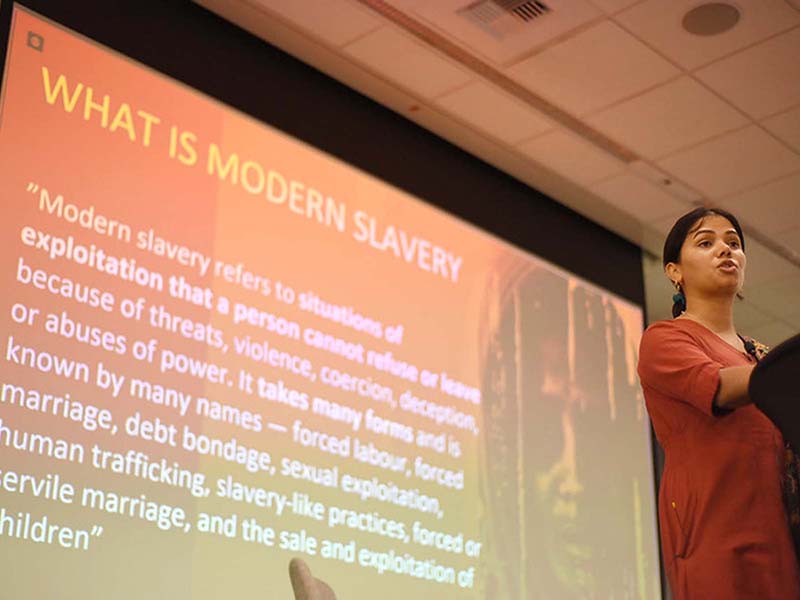
Authors
-

Director, Human Rights and Inclusive Business, BSR
-
Aditi Mohapatra
Former Managing Director, BSR
Included in the Biden-Harris administration’s flurry of activities in its first two weeks in office was a series of executive actions focused on addressing the U.S. federal government’s role in perpetuating systemic racism. The actions aim to address federal use of private prisons and racism in federal housing policies, affirm the federal government’s commitment to tribal sovereignty and consultation with Indigenous communities, and combat xenophobia against Asian Americans and Pacific Islanders.
While such actions—and the administration’s acknowledgement of historic systemic racism and discrimination—are certainly a step in the right direction, government is just one actor. The private sector, academia, civil society, and culture and society at large have all contributed to the entrenchment of systemic discrimination and therefore must play a role in its undoing.
So how can companies play a role in tackling the same challenges identified and acknowledged by the Biden-Harris administration?
As a first step, companies must identify how individuals and communities may be denied equal opportunities both up and down their value chain. The following are but a small sampling of ways that the private sector’s operations or products and services have furthered structural racism or structural oppression:
Corporate Advertising
Generations of discriminatory depictions have strengthened (or created new) stereotypes within societies, affecting any number of vulnerable groups: Black, Indigenous, and Other People of Color (BIPOC), women, religious communities, persons with disabilities, etc. A recent survey of 3,500 advertisements across 56 countries between 2019-2020 found that only 7 percent of women and 9 percent of men were shown in non-traditional, un-stereotyped gender roles, and only 22 percent of ads surveyed featured a mixture of ethnic origins or skin color.
An example countering this trend is that of P&G’s “We See Equal” advertising campaign, which sought to undo entrenched stereotypes about traditional gender roles and included several companies rebranding. Other examples include actions from Mars and PepsiCo, as well as some professional sports teams, which involved updating brand logos based on racist stereotypes.
Lending
Discrimination by institutional lenders has resulted in unequal access to financing for housing, education, transportation, and more, exacerbated by the marketing of more expensive lending products to vulnerable groups.
Netflix is using its influence to address this disparity by moving up to US$100 million of its cash holdings to financial institutions that focus on Black communities—a move that first recognizes the problem at hand and then seeks to use the company’s leverage to influence change.
Corporate Hiring
Significant research indicates that despite the prevalence of Diversity, Equity, and Inclusion (DEI) programs, little has changed in terms of discrimination rates in corporate hiring, retention, and promotion practices. In the U.S. for example, a study by the Harvard Business Review found that hiring discrimination against Black Americans has not declined in 25 years despite the prevalence of corporate initiatives to tackle this problem, with similar patterns identified in Europe and elsewhere.
Tech-Based Products and Services
Algorithmic decision-making across all facets of society has exacerbated inequalities and prejudices, from facial recognition software performing poorly with Black and female faces, to lending software discriminating against Black mortgage applicants, to automated court sentencing software that carries an implicit bias against Black defendants.
However, tech platforms can also serve as vehicles for change. Microsoft, in partnership with the Urban Institute, is working to advance data-driven transparency and accountability concerning the impact of prosecutorial discretion on communities of color, potentially providing the evidence needed to identify how the U.S. justice system disproportionately targets them.
Corporate Lobbying and Tax Policy
It is well known that many companies use their influence to support politicians whose voting and policy records demonstrate a commitment to maintaining the status quo. Others take efforts to reduce their tax burdens, which ultimately pulls money out of the communities that need it most, namely those historically impacted by structural oppression.
While many companies temporarily halted political spending as a result of the insurrection at the U.S. Capitol in January 2021, adopting an “ESG lens” across all political and lobbying engagements going forward is one way companies can create consistency between their DEI targets and their lobbying activities.
Without first understanding how a company’s entire operations and value chain may exacerbate inequity and entrenched disparities, companies will not be able to tackle these challenges. There are many approaches to identify and assess such impacts, including conducting human rights impact assessments with a specific lens on the impacts of systemic racism and oppression.
Once identified, companies must act, enable, and influence to address the negative impacts: through principles, policies, and approaches embedded into all aspects of the business; through procurement product development, and partnerships; through corporate lobbying and pushing policy debates, and everything in between.
This is a long and difficult journey, one which will not be successful without regular rightsholder engagement; clear, accurate, and up-to-date data; proper resourcing; and a strong commitment from the top.
The Biden-Harris administration’s executive orders are a tremendous step in the right direction, but tackling systemic racism and oppression is a collective effort. Without the commitment and effort of the private sector, progress will be slow and incomplete.
BSR’s latest sustainability insights and events straight to your inbox.
Topics
Let’s talk about how BSR can help you to transform your business and achieve your sustainability goals.







